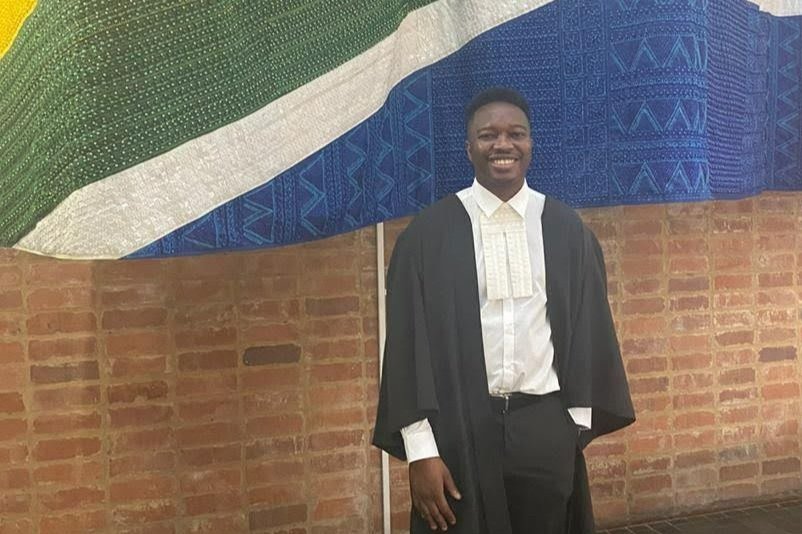[ad_1]

An interview with Ohene Yaw Ampofo-Anti, Program Associate at Centre for Economic and Social Rights (CESR)
UCLA Law School Alumni Class of 2019
When were you at UCLA and where did you do your undergraduate studies?
I was at UCLA from August 2018 until May 2019 to do an LLM with specializations in Public Interest Law and Policy; and Critical Race Studies. Before my LLM, I did an LLB (Bachelor of Laws) at the University of Cape Town from 2009 until 2013.
What is your current role?
I am a Program Associate. In my role, I provide research and advocacy support across several CESR projects, with a particular focus on embedding human rights into agendas for economic transformation and strengthening our collaborative work around assessing rights fulfillment.
What was your path to what you are doing now?
Before joining CESR I was a Law Clerk at the Constitutional Court of South Africa. As my clerkship was coming to an end, I started looking for jobs in the human rights and advocacy space. I came across the job advert for CESR in the opportunities section of an email sent out by the Promise Institute. I was immediately drawn to the role because I had always had a passion for (i) socio-economic rights; (ii) the power of human rights and the law to address socio-economic inequality. In addition, after my stint at UCLA, I was interested in gaining experience in international human rights advocacy. So, the role seemed like the right combination of all the things I was looking for.
What is a typical day like for you?
Typically, in the morning up to the early afternoon, I work on a specific project for several hours which could vary depending on the task at hand. Because of time zone differences, I usually have meetings with colleagues or partners in the late afternoon to early evening.
What were some of the biggest challenges you faced in getting to where you are today?
When I graduated from UCT, I had two goals I really wanted to accomplish. The first was completing an LLM from a well-ranked Law School overseas. The second was clerking at the Constitutional Court of South Africa. Both of those goals took considerable time to accomplish. I started applying for LLM programmes in late 2015. I was accepted into several very good schools but due to financial constraints I was unable to attend any of them. I did however enquire into the possibility of deferral and accepted an offer from one law school which offered me a deferral to this end. I then deferred my acceptance at that school for a year whilst I applied for scholarships and funding. Unfortunately, none of my applications for financial assistance were successful so I had to withdraw my place. Towards the end of 2017, I applied to several LLM programmes again as well as scholarship and fellowship programmes attached to those law schools. My application to the Sonke Health & Human Rights Fellowship was successful and that is how I ended up at UCLA which was actually perfect because my primary interest in pursuing an LLM was to gain expertise in critical race theory and intersectionality. Similarly with clerking at the Constitutional Court I applied no less than three times until I managed to get a place. So, my advice to any law students out there is to never give up on your dreams and be persistent and tenacious.
What has been your favorite project that you have worked on and why is that your favorite?
During my clerking at the Constitutional Court, I clerked for Acting Justice Margie Victor. When I began my clerkship, Judge Victor was writing her judgment for what would become the landmark decision of Mahlangu v Minister of Labour which is a ground-breaking judgment on the socio-economic rights of domestic workers in South Africa. Along with my co-clerks, I was able to make a contribution to her judgment. Being part of the team who assisted Justice Victor in writing the majority judgment was truly a dream come true because it was an opportunity to make use of my knowledge of critical race theory and intersectionality which I had gained whilst doing my LLM at UCLA. Justice Victor has penned a remarkable judgment which evaluated the gendered poverty that poor Black Women continue to endure in post-apartheid South Africa and most importantly fully embraced intersectionality as a concept which should inform anti-discrimination jurisprudence in South African law.
[ad_2]




